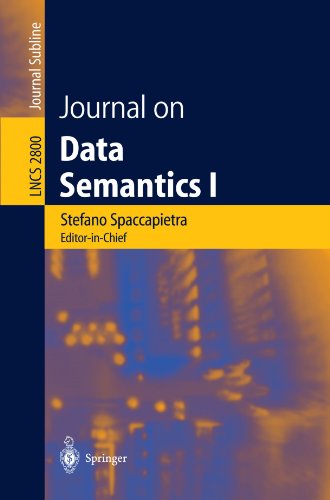

Most ebook files are in PDF format, so you can easily read them using various software such as Foxit Reader or directly on the Google Chrome browser.
Some ebook files are released by publishers in other formats such as .awz, .mobi, .epub, .fb2, etc. You may need to install specific software to read these formats on mobile/PC, such as Calibre.
Please read the tutorial at this link: https://ebookbell.com/faq
We offer FREE conversion to the popular formats you request; however, this may take some time. Therefore, right after payment, please email us, and we will try to provide the service as quickly as possible.
For some exceptional file formats or broken links (if any), please refrain from opening any disputes. Instead, email us first, and we will try to assist within a maximum of 6 hours.
EbookBell Team

0.0
0 reviewsThis book constitutes the ?rst volume of the ?rst journal in the new LNCS Jo- nalSubline,theJournalonDataSemantics. Publishingajournalinabookseries might come as a surprise to customers, readers, and librarians, thus we would like to provide some background information and our motivation for introducing this new LNCS subline. As a consequence of the very tight interaction between the Lecture Notes in ComputerScienceseriesandtheinternationalcomputerscienceresearchand- velopment community, we receive quite a few proposals for new archive journals. From the successful launch of workshops or conferences and publication of their proceedings in the LNCS series, it might seem like a natural step to approach the publisher about launching a journal once this speci?c ?eld has gained a c- tain level of maturity and stability. Each year we receive about a dozen such proposals and even more informal inquiries. Like other publishers, it has been our experience that launching a new jo- nal and making it a long-term success is a hard job nowadays, due to a generally di?cult market situation, and library budget restrictions in particular. Because many of the proceedings in LNCS, and especially many of the LNCS postp- ceedings, apply the same strict reviewing and selection criteria as established journals, we started discussing with proposers of new journals the alternative of devoting a few volumes in LNCS to their ?eld, instead of going through the painful Sisyphean adventure of establishing a new journal on its own.